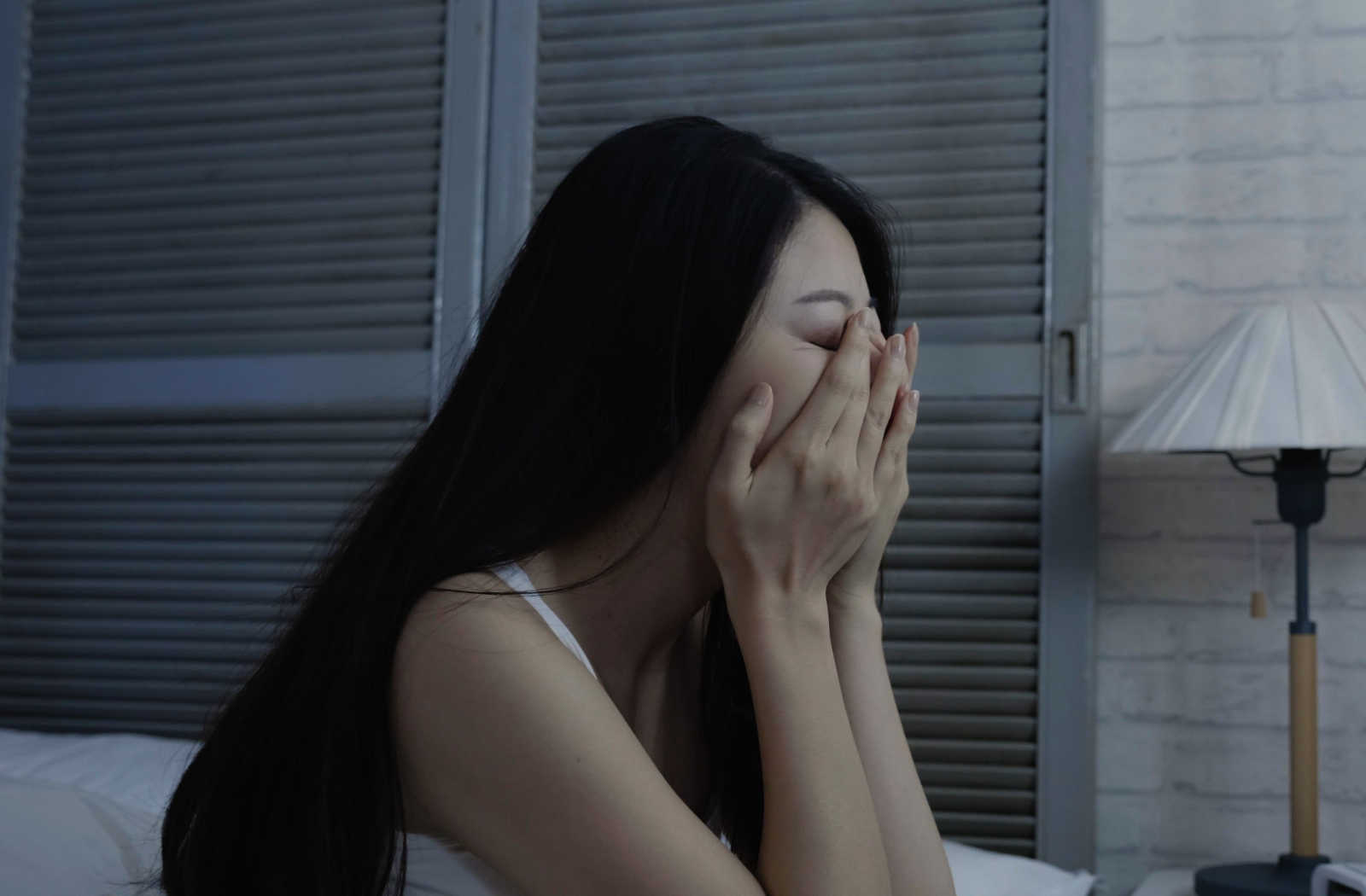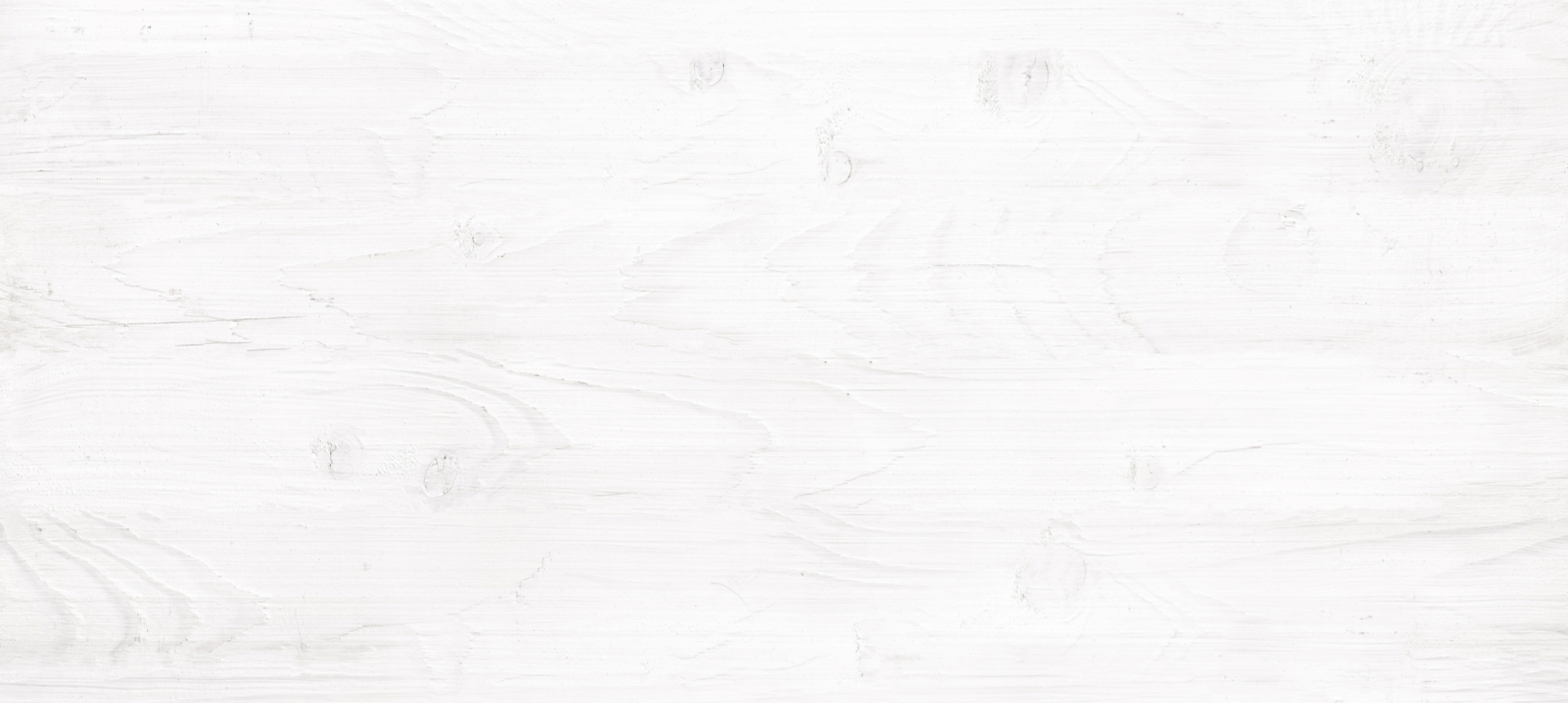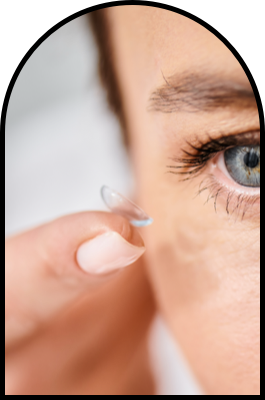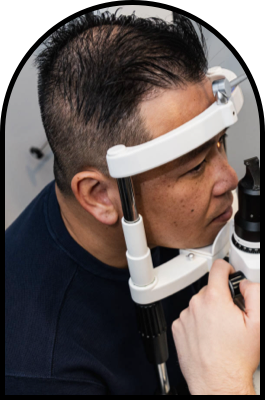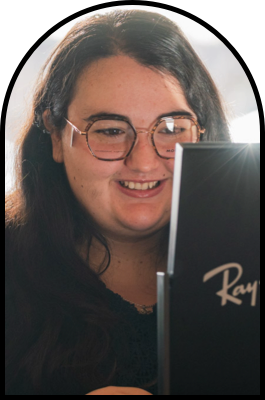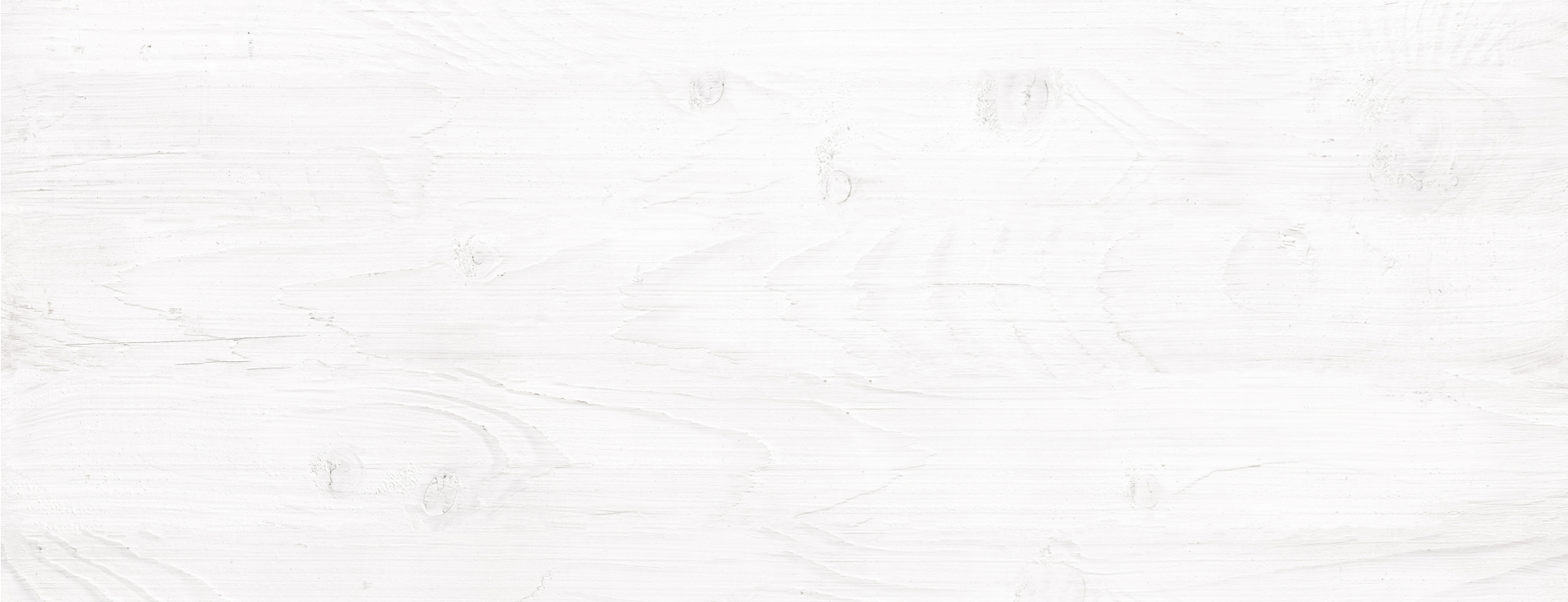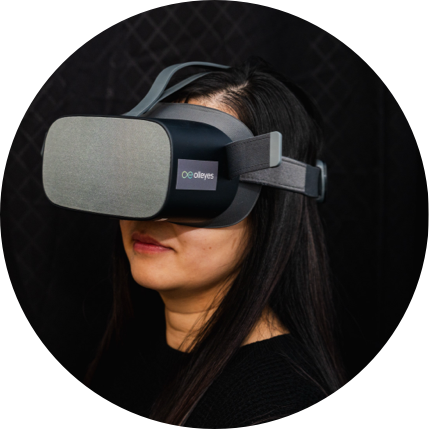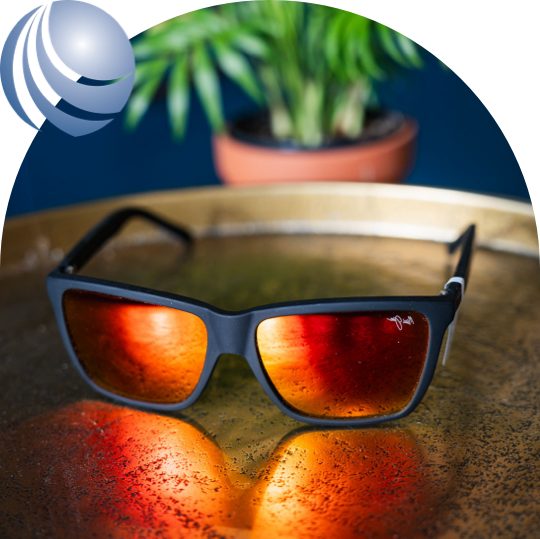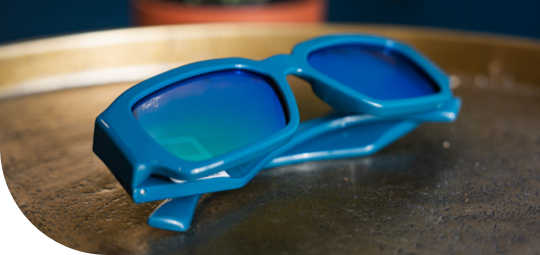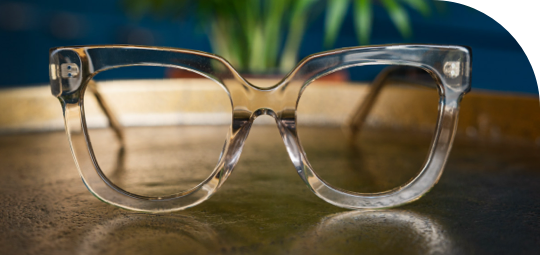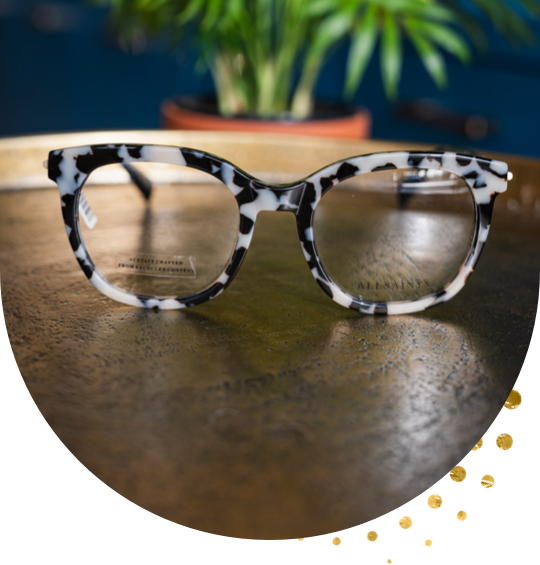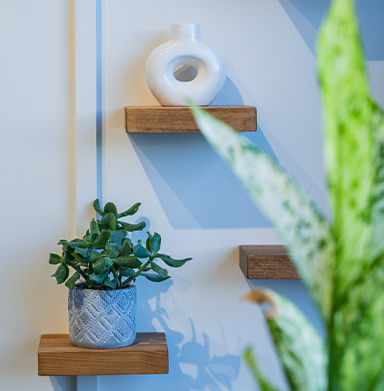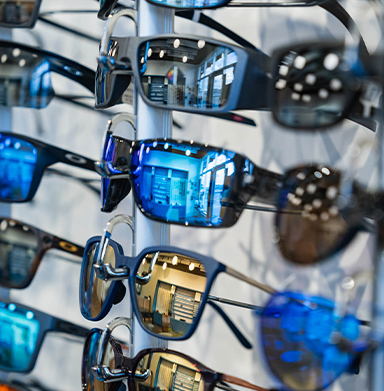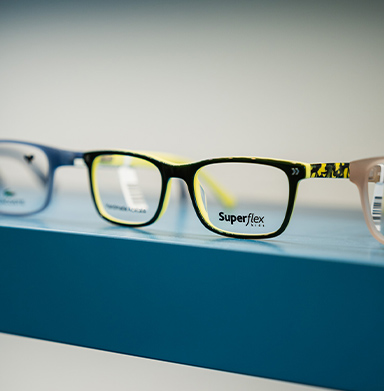Many Canadians struggle with dry eyes, and when you live in a dry climate, dry eyes can feel inescapable. Starting your day with dry eyes can set the wrong tone, especially when your symptoms make it difficult to put in your contact lenses, do your makeup, or comfortably work with screens throughout the day.
You may be waking up with dry eyes for several reasons, including insufficient tear production, poor quality tears, and nocturnal lagophthalmos. You can take steps to manage symptoms when you wake up and prevent dry eyes overnight.
Dry Eye Symptoms
Your tear film helps keep your eyes hydrated and nourished, but if there is a problem with your tears or the glands that produce the essential ingredients of your tears, you are at risk of developing dry eyes first thing in the morning and throughout the day.
When you wake up with dry eye symptoms, you can experience:
- Redness
- Grittiness
- Burning sensations
- Light sensitivity
- Stinging sensations
- Watery eyes
- Blurry vision
- Difficulty wearing your contact lenses
What Causes Morning Dry Eyes?
There are many possible causes of dry eyes, from your sleeping environment to your eye health. Underlying eye conditions are a common cause that can be addressed with lifestyle changes and treatment.
Insufficient Tear Production
If you are experiencing dry eye symptoms, the cause may be insufficient tear production. This form of dry eye is known as aqueous-deficient dry eye and can be a result of:
- Autoimmune conditions
- Hormone changes
- Antihistamines or blood pressure medication
- Age
- Thyroid problems
- Diabetes
- Other eye conditions
When the lacrimal gland at the corner of your eye struggles to produce enough tears, it cannot wash away particles, dust, and debris in your eye, which can cause a gritty sensation and other dry eye symptoms.
During a comprehensive eye exam, we can help diagnose and treat aqueous dry eye to bring relief and moisture to your eyes.
Poor Quality Tears
Your tears include an oil layer that helps keep your eye’s surface lubricated, but tears can evaporate too fast when that layer is not strong enough to retain moisture. Otherwise known as evaporative dry eye, this form of dry eye disease is typically caused by changes to your meibomian gland, which produces oil.
Meibomian gland dysfunction is a common cause of dry eye and is often the result of blocked oil glands on your eyelid margins. Meibomian glands can become blocked by:
- Skin conditions
- Inflammation
- Wearing contact lenses for too long
- Eye surgery
- Eye injury
- Infrequent blinking
- Other eye conditions
Treating meibomian gland dysfunction can help you find relief from dry eye symptoms.
Nocturnal Lagophthalmos
Nocturnal Lagophthalmos is a condition where you cannot completely close your eyes as you sleep. When your eyelid is partially open overnight, it can impact the quality of your tear film, causing dryness, grittiness, sensitivity to light, and other dry eye symptoms.
Many people do not realize they have nocturnal lagophthalmos until it causes uncomfortable symptoms like morning dry eyes.
Some people are born with nocturnal lagophthalmos, but there are other causes, including:
- Stroke
- Injury to the cerebellar artery, which supplies blood to the facial nerves
- Bell’s palsy
- Autoimmune disorders
Nocturnal lagophthalmos is believed to have a connection with weakness in the facial nerve, which can cause overstimulation of the muscles.
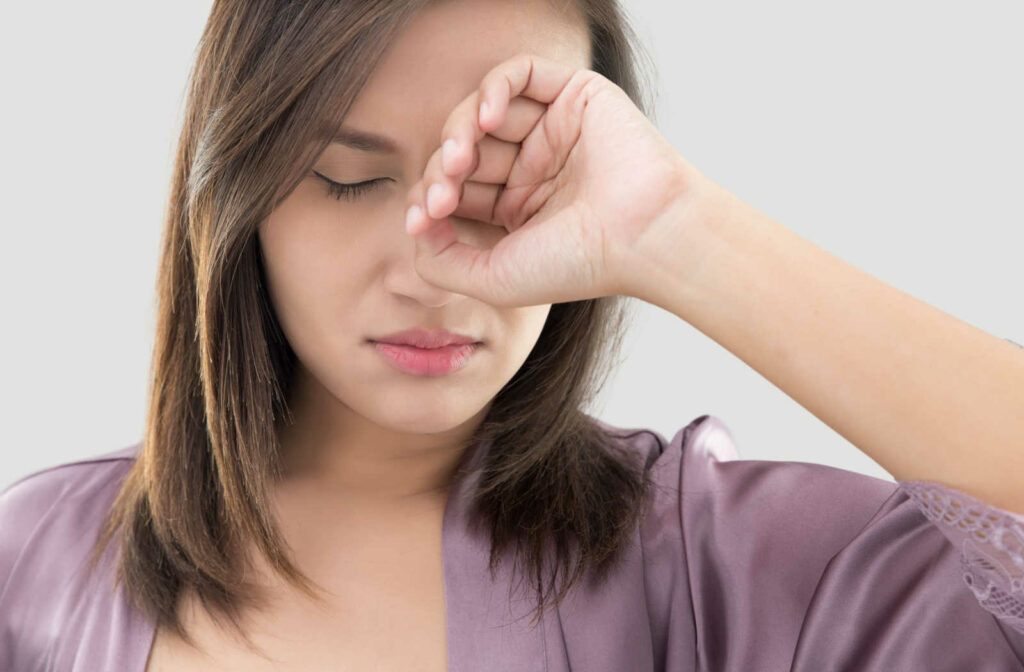
How Can You Prevent Dry Eye During Sleep?
Many dry eye sufferers begin their day with dry eyes, but there are some methods that can help limit and relieve symptoms—in the morning and throughout the day.
Use a Humidifier
Alberta’s air is notoriously arid. Humidifiers can help counteract Alberta’s natural climate and restore moisture to the air. Setting up humidifiers at your bedside, office desk, and around the house can help relieve dry eye symptoms throughout the day and limit symptoms first thing in the morning.
Eye Drops
Artificial tears can relubricate your eyes and offer relief from irritating dry eye symptoms. Using lubricating eye drops right before bed can help set you up for a comfortable morning, and some artificial tears come in a gel form for an extra thick formula that can last longer overnight.
You should always speak with an optometrist before trying any eye drops to ensure you use the right formula for your eyes.
Use a Warm Compress
A warm compress is a home remedy that can help unblock oil glands by liquefying buildup and reducing inflammation to help improve meibomian gland function and make dry eye symptoms more manageable. You can make a warm compress yourself and purchase reusable warm compresses for repeated use.
What Can You Do if You Wake Up with Dry Eyes?
It’s estimated that over 20% of Canadians experience dry eyes. Our optometry team can diagnose the type and severity of your dry eye to develop a customized treatment plan for your eyes.Schedule an appointment at Chestermere Optometry to get started on your path to dry eye relief. We can use advanced diagnostic tools to uncover the cause of your dry eye symptoms and provide personalized recommendations for treatment that can help you get relief.


